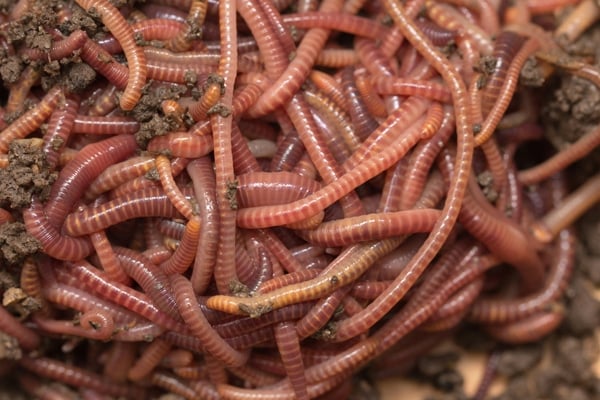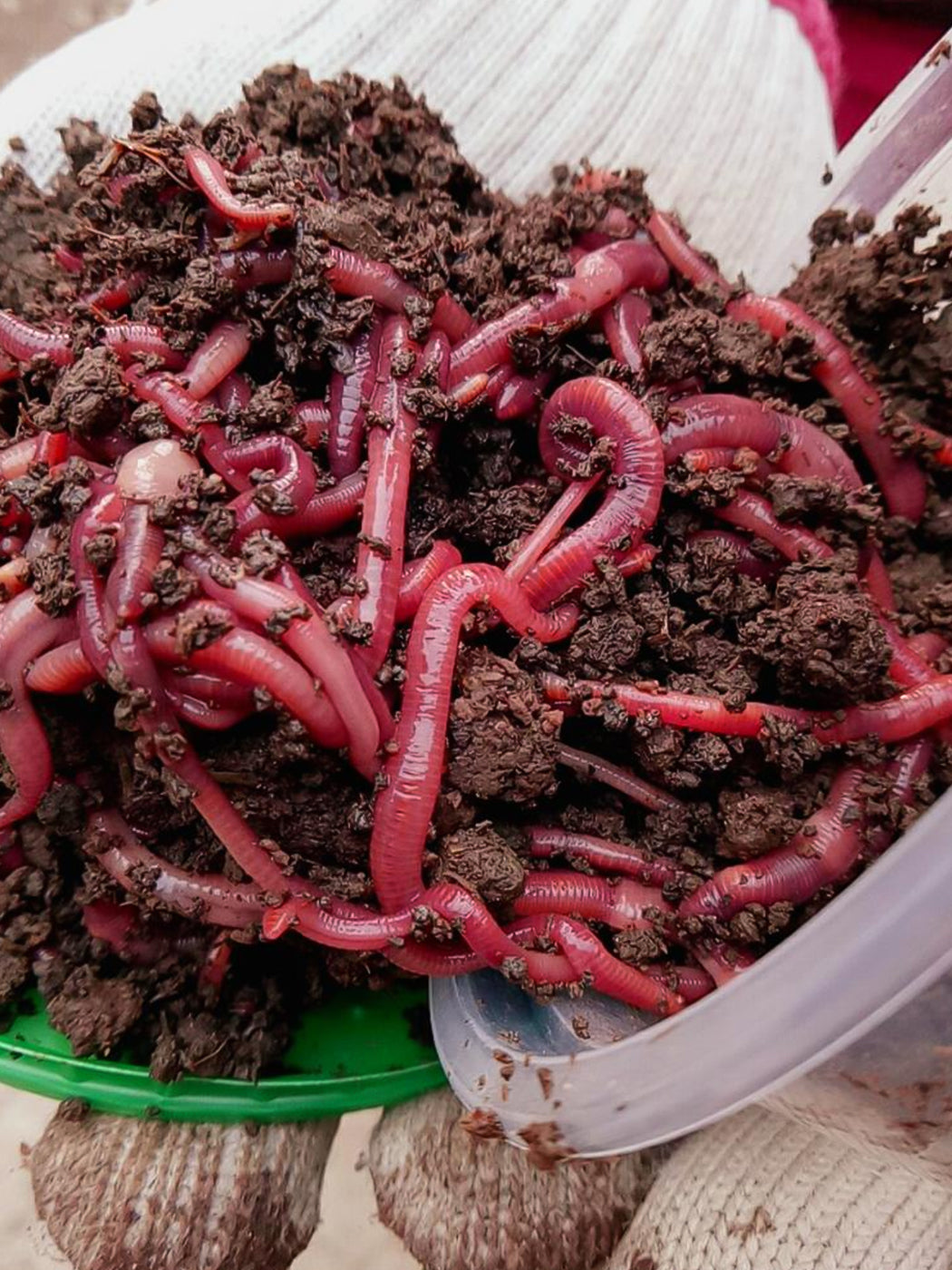Transform Your Lawn with the Expertise of Red Wiggler Express Lawn Care Experts
Transform Your Lawn with the Expertise of Red Wiggler Express Lawn Care Experts
Blog Article
Unlock the Tricks of Red Wigglers: Your Guide to Composting Success
The assimilation of red wigglers into composting techniques provides a considerable chance for boosting dirt health and promoting sustainability. These organisms are not just reliable recyclers of natural waste; they provide a myriad of benefits that can change garden administration. Understanding their needs and behaviors is vital for enhancing their possibility, from establishing a proper worm container to feeding them the best materials. As we explore the necessary parts of effective vermicomposting, one may question just how these small animals can cause a much more vivid and effective garden ecosystem.

What Are Red Wigglers?
(Red Wiggler Express)Red wigglers, clinically referred to as Eisenia fetida, are a species of earthworm largely utilized in composting because of their amazing capability to break down raw material efficiently. These worms are characterized by their reddish-brown pigmentation and a fractional body, usually determining between 3 to 4 inches in size. Unlike various other earthworm species, red wigglers flourish in rich, organic settings, making them excellent for vermicomposting systems.
Native to North America, they are commonly located in decaying fallen leaves and compost heaps, where they play a critical function in nutrient recycling. Their adaptation to staying in a damp, cardio atmosphere enables them to eat huge amounts of natural waste, damaging it down right into nutrient-rich spreadings that boost dirt health and wellness.
Red wigglers recreate quickly, with a single worm capable of generating several cocoons each week, each containing several hatchlings. Understanding the biology and habits of red wigglers is vital for optimizing their potential in composting applications.
Advantages of Making Use Of Red Wigglers
Taking advantage of the power of red wigglers in composting uses countless benefits that enhance soil wellness and promote sustainable waste monitoring. These exceptional microorganisms efficiently break down raw material, transforming cooking area scraps and yard waste right into nutrient-rich vermicompost. This finished product is exceptionally advantageous for plant development, as it enhances dirt structure, enhances wetness retention, and enhances nutrient schedule.

(Red Wiggler Express)Additionally, the visibility of red wigglers in your composting system can accelerate the composting process, creating premium garden compost in a fraction of the moment compared to conventional approaches. The spreadings produced by these worms are additionally brimming with beneficial bacteria that further enrich the soil ecological community.
Setting Up Your Worm Bin
Producing a reliable worm container is a straightforward procedure that can substantially improve your composting efforts. Worm containers can be made from plastic storage space containers, wooden boxes, or commercially offered worm containers.
Following, prepare the bedding material, which serves as the worms' habitat. A mix of shredded paper, cardboard, and coconut coir functions well, providing a comfortable setting for the worms.

Feeding Your Red Wigglers
To ensure the wellness and performance of your red wigglers, it is important to give them with a well balanced diet regimen that fulfills their nutritional needs. Red wigglers thrive on a diverse range of organic products, which not just supply needed nutrients yet additionally advertise efficient composting.
Beginning by including kitchen scraps such as vegetable peels, fruit cores, and coffee grounds. Avoid citrus fruits, onions, and garlic, as these can be detrimental to worm health. Additionally, introduce shredded paper, cardboard, and dry leaves to produce a well-aerated environment.
Feeding regularity should be monitored; usually, worms can eat half their body weight in food weekly. It is crucial to prevent overfeeding, as excess food can result in undesirable odors and bring in bugs. A good method is to add food in tiny quantities, enabling worms to process it before presenting a lot more.
Keeping wetness levels is additionally important; the bed linens needs to be damp however not soggy. Last but not least, be certain to regularly check the temperature level and pH degrees of the bin to guarantee an optimal setting for your red wigglers, right here inevitably boosting their composting efficiency.
Harvesting and Making Use Of Garden Compost
A successful composting procedure with red wigglers finishes in the abundant, dark garden compost referred to as vermicompost, which can substantially improve dirt health and plant growth. Harvesting this nutrient-dense product generally occurs every three to six months, relying on the size of your system and the amount of raw material being refined.
To collect, carefully different the garden compost from the worms and any undecomposed products. One effective method includes relocating the components of the bin to one side and including fresh bed linens and food to the empty space, motivating the worms to migrate. After a couple of days, the compost can be collected from the contrary side.
It is important to make use of vermicompost properly to optimize its benefits. By integrating vermicompost right into your gardening program, you not only reuse organic waste but also develop a successful community that sustains sustainable gardening practices.
Conclusion
In recap, red wigglers act as outstanding allies in composting initiatives, changing natural waste into nutrient-rich vermicompost (Red Wiggler Express). Their distinct organic features and efficient waste processing abilities contribute dramatically to sustainable gardening techniques. By recognizing the optimum problems for their environment, feeding needs, and compost harvesting strategies, garden enthusiasts can enhance dirt health and wellness and promote plant vigor. Welcoming vermicomposting not just reduces garbage dump waste however also promotes a much more ecologically responsible strategy to gardening and resource monitoring.
Report this page